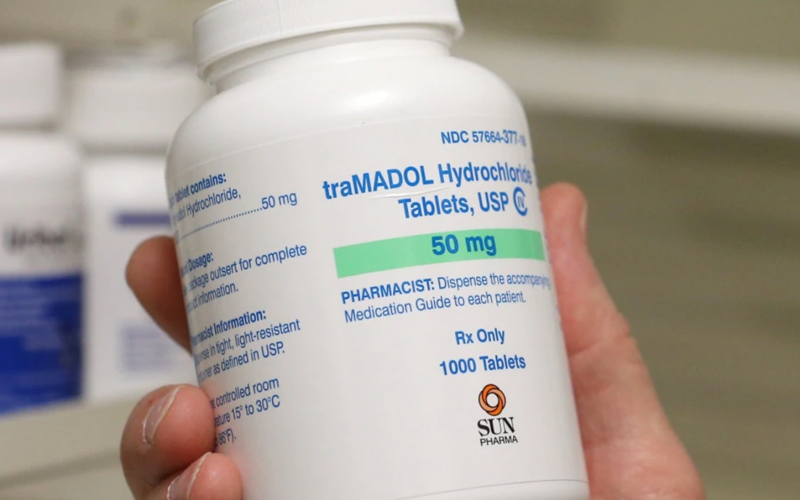Part of the major challenge in overcoming addiction is preventing relapse. Staying sober after treatment is another hurdle that one must commit themselves to taking on for a lifetime. Neglecting the idea that relapse can still happen after a period of recovery will only make one more vulnerable to experiencing one.
It is highly recommended to never guard oneself off from returning to substance use, and this can be done by completing maintenance medications, staying active in support groups, keeping a healthy lifestyle, and asking for help when the need arises. Overcoming addiction is a lifelong journey and sustaining abstinence is possible with extra care.
What Happens After Tramadol Addiction Treatment
 As soon as treatment ends, it does not follow that one is healed and safe from the temptations of addiction. One of the major struggles of people who get past their inpatient treatment is facing the real world and encountering their potential triggers all on their own. Being away from the structured program in the rehab can be challenging at the start.
As soon as treatment ends, it does not follow that one is healed and safe from the temptations of addiction. One of the major struggles of people who get past their inpatient treatment is facing the real world and encountering their potential triggers all on their own. Being away from the structured program in the rehab can be challenging at the start.
This is where the essence of aftercare programs steps in. Aftercare programs are designed to help one sustain their recovery after completing their treatment plan. Experts suggest that patients must remain active in aftercare programs for at least a year, and then, later on, stay involved by helping new members stay sober too.
Creating an aftercare plan can be done alongside a therapist or an addiction specialist, although this is not always necessary. However, their guidance can help one find a program that suits their needs. The following are the options that can be taken for a few months, and then, later on, one may shift to whatever ultimately aids their progress.
Outpatient Care
 Some people may find themselves less confident to take on their life independently without the guidance of an addiction specialist like their usual routine. More than that, they may struggle to overcome their personal triggers given the presence of the daily stressors in their life outside rehab. These needs can be accommodated with outpatient care.
Some people may find themselves less confident to take on their life independently without the guidance of an addiction specialist like their usual routine. More than that, they may struggle to overcome their personal triggers given the presence of the daily stressors in their life outside rehab. These needs can be accommodated with outpatient care.
Outpatient treatment can help one deepen their understanding of their addiction and strengthen their coping skills until it can work enough to combat themselves independently against relapse. Individual therapy can support one to achieve this goal. Confidence in one’s therapist is a key to progressing significantly so it really pays to find one to trust.
In outpatient programs, patients may also get the chance to learn from the experiences of other people through group therapies. Some sessions may take at least 9 hours while some may require a maximum time of 20 hours in a week. Patients may enjoy the rest of the days for their personal life.
Sober Living Homes
Sober living homes offer residence to people who may find their previous environment harmful in their recovery. These residences provide a drug-free environment which is essential in allowing a patient to focus on their recovery treatment plan. This is best for those who opt to avoid certain people and places that can trigger relapse after their treatment.
With sober living homes, an individual can live their life on their own. However, they have a set of house rules to follow such as curfew and limitations on visitors. A resident is also not entitled to stay in these homes for a lifetime. As soon as they are fully able to live sober, they are required to move to a new place.
Sober living homes also extend support to their residents by ensuring that they stay active in their recovery meetings. This setup also comes with weekly or monthly fees. Their treatment team is a helpful guide in finding a residence that fits one’s desired location and budget. If this program sounds ideal, one can contact them directly for inquiries.
Recovery Meetings
 Among all the aftercare options, recovery meetings come for free. It only takes an effort to discover the recovery meetings available in one’s community. This involves a fellowship of people who have left behind their substance addiction and now aim to sustain a drug-free life by extending support to each other through shared learnings and experiences.
Among all the aftercare options, recovery meetings come for free. It only takes an effort to discover the recovery meetings available in one’s community. This involves a fellowship of people who have left behind their substance addiction and now aim to sustain a drug-free life by extending support to each other through shared learnings and experiences.
These support groups follow different sets of programs. The most popular one is the 12-step program which is typically led by a sponsor, someone who has overcome addiction for a long time and now guides members to stay sober. In the 12-step program, members discuss and follow the 12 steps in overcoming addiction.
Another program that can also be a good option is the SMART Recovery whose members take on the Cognitive Behavior Therapy as a guide in their learning. Some people recommend joining different programs until they can identify which self-help group best caters to their needs.
What Are Other Steps To Avoid Relapse
On top of an aftercare program to direct one’s focus to stay on the path of recovery after treatment, it also pays to take on the following steps to avoid relapse. These are all essential to sustain the strength of the mind and body, the key areas that relapse is typically challenged during unexpected times.
- Take maintenance medications as prescribed. These drugs boost the body’s combat against cravings which induces occasions of relapse.
- Make time for both physical and mental exercise. Go to the gym or do yoga. These ways increase healthy hormones which sustain good health.
- Learn a new skill or discover new hobbies. This helps fill the mind with new ideas instead of thoughts about the drug.
- Stay nourished and hydrated. A healthy body is never easily moved by temptations of addiction.
- Avoid attempts of taking small doses of the drug. Whether in a celebratory mood or feeling down, never consider this act acceptable.
- Constantly examine potential triggers of addiction. Think of HALT. Are you Hungry? Angry? Lonely? or Tired? What triggers your addiction?
- Find ways to cope with stress. You may find company with people or with nature to reduce your stress.
- Seek help when necessary. Never hesitate to do so.
